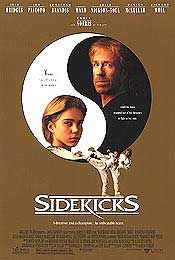Op-Ed: Gillette Ad Shows Our Culture Struggles to Define Healthy Masculinity
By Jared Lafitte, Contributing Writer
In recent weeks, Gillette released a bold ad called “We Believe: The Best Man Can Be” with the marketing slogan “shave your toxic masculinity.” Due to all the buzz about the campaign, it’s necessary for us to unpack the motivating ideologies and assess how we as Christians should handle pulsing topics that deal with complex issues.
One of the reasons there has been such a backlash to the recent Gillette commercial on toxic masculinity is because the commercial directly implies that the behaviors it’s rightly condemning are common and typical, something that most men act out on a regular basis and something that most women experience on a regular basis which for some it does and for others, if any, happens few and far between.
Imagine if a prominent women’s product (like Revlon) put out a 1:45 second commercial depicting every negative feminine stereotype in succession, and then said, “Women, we can do better,” followed by a pitch to buy Revlon products. Be honest, how would you feel about this? I could be totally wrong, but I’m guessing there would be a public outrage against Revlon like the world has never seen. It would be white-hot and furious and would make the backlash against Gillette look like child’s play.
Part of the deeper issue surrounding the commercial is that our culture struggles to understand what healthy masculinity looks like. While we agree that some men do behave in a toxic way, we don’t always agree on what the solution for this is. There are some who feel that masculinity is by nature a toxic thing and should be replaced by a more feminine approach to life.
The problem inherent in this thinking is that masculinity and femininity are not simply human inventions that we should re-write and redefine at our own pleasure; masculinity and femininity are qualities designed by God, which we should respect and uphold. To put it more simply, masculinity can become distorted, but this does not mean that masculinity is itself distorted. The question of what it means to be a man and what it means to be a woman is God’s to define, which He has laid out in his word, and not simply a cultural invention for us to define in our own image.
It’s not that what Gillette is saying is inherently untrue (or what Revlon would be saying in my hypothetical example); it’s that the context and generalizations behind the messages, absent of nuance, are off-base. Yet, unfortunately, maybe a commercial is better than nothing. Maybe it’s what we need in these desperate times if we have such a social lack of mature men teaching other men (and mature women teaching other women).
Men can and should be better. Women can and should be better. We need to be better for each other but, hygiene products that create commercials that try to scold us into doing it isn’t the best way to get there.
While we can applaud Gillette’s attempt to encourage men to a higher standard of behavior, we must also exercise our discernment to seek a biblical view on what masculinity looks like. We need deep, close personal relationships with mature men and women who can show us, person to person, what it means to have healthy masculinity and healthy femininity and turn our gaze toward God, who gives us wisdom in these areas.
For those that haven’t seen the ad, watch the video below.



 - Content:
- Content: 

